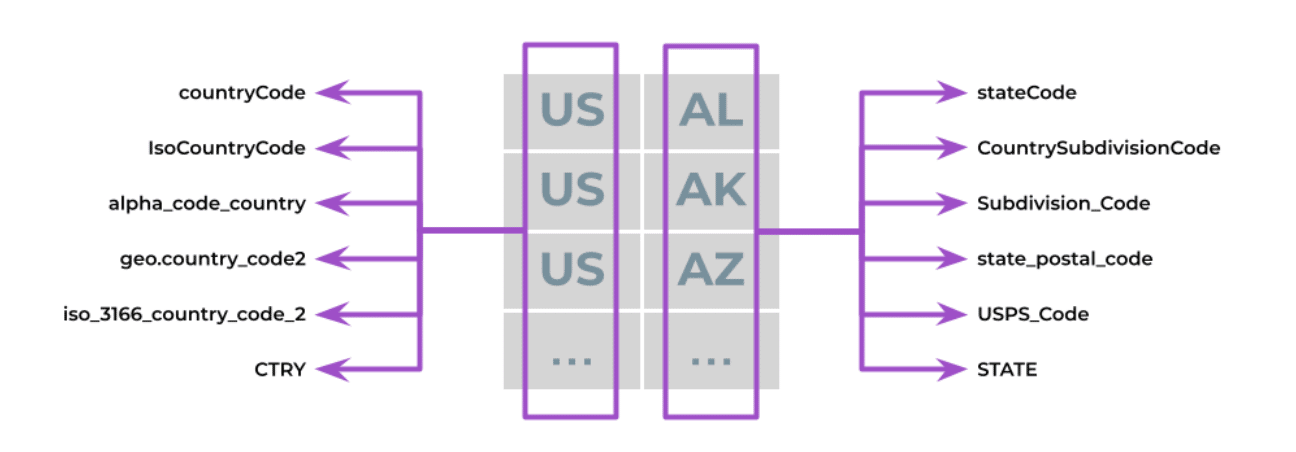
The Challenge
A major multinational bank faced challenges for internal data producers and consumers stemming from lack of standardized data across the enterprise. The organization produces, stores, and processes a vast amount of data in a context that historically lacks centralized data management controls, resulting in data that was inconsistent, duplicated, difficult to link together, and without clear ownership. In the absence of common standards across departments and financial product lines, divergence had become more and more ingrained in the ecosystem, affecting over 300 petabytes of data. The lack of alignment across organizational divisions on the meaning, format, and intent of data attributes reduced the ability of data producers and consumers to find, trust, or use crucial data.


The Solution
To enable the adoption of standardized data across the organization, EK spearheaded the design and development of an enterprise ontology, defining key data elements describing the core financial activities the client performs for millions of customers as well as additional emerging domain areas and use cases. EK worked with stakeholders to identify and scope use cases and collaborated with subject-matter experts to model data elements into the ontology. EK supported publication of the ontology through cloud-based discovery and access tools by recommending an ontology management system, working with tooling teams to implement the system, and identifying opportunities to enhance usability through UX improvements and integrations with existing systems.
In order to facilitate ongoing maintenance and development, EK led the creation of a federated contribution and governance program, including approaches for communication and change management. EK led the definition of federated roles and responsibilities, the establishment of collaborative communication forums and channels, and the selection of high-value pilot use cases. To ensure consistency and mitigate the risks of decentralization, the governance model included a set of enterprise-wide minimal core criteria for standardized data to be applied across domains and use cases. As federated governance was rolled out, EK continued to refine processes, templates and materials, and related enterprise policies, standards, and procedures.

The EK Difference
EK’s unique use case-driven design methodology centered our solution around the business value it delivers. Leveraging our extensive experience in end-to-end ontology design and implementation, we started with a small-scale but high-impact proof of concept (POC) followed by iterative refinements and enhancements. This enabled internal champions to clearly demonstrate the ability of the enterprise ontology to answer crucial analysis questions and deliver tangible business value.
EK also applied a minimum viable product (MVP) approach to creating and implementing the federated governance model, launching the initial framework to support the POC and iteratively operationalizing new processes as they were developed. Rolling out the governance model as an MVP with ongoing enhancements enabled continual incorporation of stakeholder feedback and demonstration of effective federation. In addition, we drew upon EK’s proven methods for engaging stakeholders throughout the process. This allowed us to manage change in the organization, influence strategic direction, and drive adoption among data producers, data consumers, and executive decision-makers.

The Results
Over the course of this engagement, EK was able to drive the growth and maturation of the client’s data standardization program, processes, and team. EK’s multi-faceted approach to ontology modeling enabled:
- Standardization of thousands of data elements powering six large-scale use cases;
- Improved data consistency, usability, and alignment across the enterprise for business-critical financial data;
- Continually increasing internal demand for onboarding into the program; and
- Adoption of federated governance by more than 10 departments less than a year after the beginning of initial process design.
The enterprise ontology developed by EK will enable the client to pursue next-generation data usage across the organization, while the federated governance model will simultaneously allow the standardization program to sustainably adapt to evolving future use cases and data needs.
